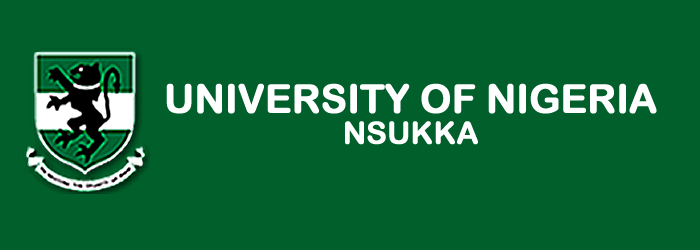The Department of Library Science, as it was originally known, was created in 1983 as a response to repeated calls for more training opportunities for library and information professionals. Subsequent changes in the name of the Department and degree nomenclature (from B.A.L.S/B.Sc.L.S. to B.L.I.S.) were effected to reflect current trends. The foundation class of 18 undergraduate students graduated in 1987. Since that time the department has grown considerably, with current undergraduate enrollment averaging 40-50 students per class. The undergraduate programme received full accreditation from NUC in 1999 and again in 2006. Many graduates of the Department have risen to positions of leadership and are making significant contributions in a variety of libraries and allied institutions across the federation and beyond. In 1995 the Department introduced postgraduate programmes leading to the Master’s and Ph.D. degrees in library and information science. It has recently introduced a Post Graduate Diploma for those with first degrees in other disciplines. The Department also offers Diploma and B.L.I.S. courses of study during the Sandwich programme.
At all levels, the Department is actively engaged in realising the university functions of teaching, research and public service. In teaching, the Department aims to combine mastery of the theoretical foundations of the profession with extensive practical experience. Aside from a variety of assignments that make up continuous assessment (at least 30 per cent of the final grade in each course), students undergo intensive practice in the University’s Nnamdi Azikiwe Library, thereby gaining experience in a large academic library, and the Children’s Centre Library, a smaller facility modeled on public and school library practice. Undergraduate and Master’s students of the Department also take part in a six-month internship as part of the SIWES programme.
Academic staff members have published widely in their varied areas of specialization and research interest. Extensive research is also carried out by postgraduate students, culminating in Doctoral theses and Masters project reports. By the end of 2010 the Department had produced 19 Ph.D. graduates and 117 holders of the Master’s degree. Undergraduate students also carry out a research project as part of their requirements for graduation. Another avenue for furthering research is the publication of the Department’s learned journal, the Global Review of Library and Information Science. In addition, the Department has built up a mixed media collection of indigenous knowledge and cultural resources.
The Department is also extensively engaged in public service, especially to children and youth of the immediate and surrounding communities through the Children’s Centre Library. Outreach programmes have initiated and supported library services in urban and rural schools and the local prison, while also providing research opportunities that further knowledge of reading and information literacy. The Department has also organised numerous workshops for school library and supervisory personnel, including a national workshop organized for NERDC in 2007 on school libraries in the basic education programme.
Members of the Department are actively involved in professional activities, serving as officers and committee members of IFLA, the Nigerian Library Association (NLA), Nigerian Association of Library and Information Science Educators (NALISE), Nigerian School Library Association (NSLA), and International Board on Books for Young People IBBY), among others, and hosting national conferences of NALISE (in 1992 and 2009) and NSLA (in 2000). Students are members of the Nigerian Association of Library and Information Science Students (NALISS), UNN branch, under which they published the maiden edition of a professional magazine, The Eye in 2010.


